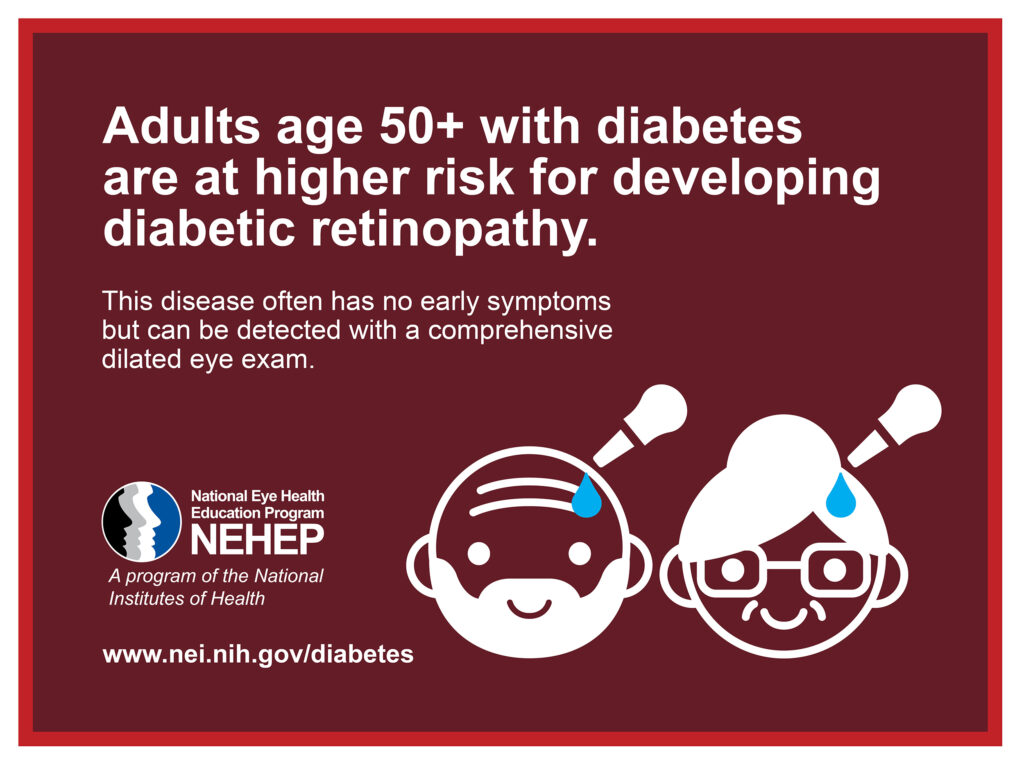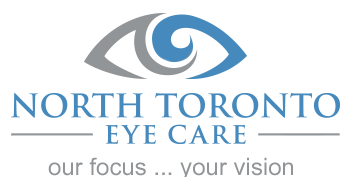Diabetes is an extremely common disease that can have negative implications on vision health. Both Type 1 and Type 2 diabetes can lead to vision problems, and it is important to take care of blood sugar levels and take steps to regulate the disease in order to avoid vision complications that could potentially lead to blindness.

What is Diabetic Retinopathy?
Diabetic Retinopathy occurs when elevated blood sugar levels cause damage to blood vessels in the retina. When these vessels become damaged, they can swell, leak, or close, stopping blood flow through the eye. Symptoms of diabetic retinopathy include spots and floaters in the eye, blurred vision, poor night vision, or having dark spots in the center of your vision.
Prevention of Diabetic Retinopathy
Early detection and management of diabetes is the best way to prevent blindness caused by Diabetic Retinopathy, which is the leading cause of blindness worldwide in adults aged 20-74. In fact, diabetic retinopathy affects one in every three people with diabetes mellitus. Patients able to better control their blood sugar levels can slow the onset of diabetic retinopathy. The best way to do this is to take prescribed medications, maintain a healthy weight, incorporate physical activity into your routine, control blood sugar, pressure, and cholesterol levels, and to discontinue smoking.
Patients diagnosed with diabetes should have a comprehensive dilated eye exam at least once a year to monitor vision health.
Diabetic Retinopathy Treatment
Treatment options for Diabetic Retinopathy can vary based on the progression of the disease. Diabetic Retinopathy can be treated medicinally using anti-VEGF medications, which help to reduce macular swelling and slow vision loss. This can also be given as an injection into the eye.
Laser surgery can be used to seal leaking blood vessels, another way to reduce retinal swelling. In some cases multiple laser treatment sessions are necessary,
Vitrectomy, a type of laser surgery for Diabetic Retinopathy, is used in advanced cases and involves the removal of the vitreous gel from the eye.
If you have diabetes, contact North Toronto Eye Care to schedule your comprehensive eye exam. We can help you to regulate your symptoms or prevent the onset of Diabetic Retinopathy.
